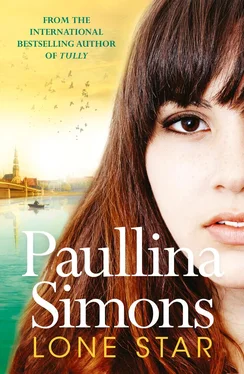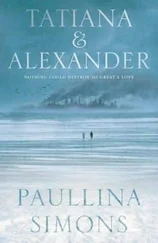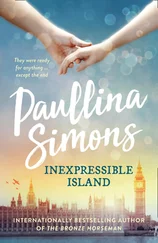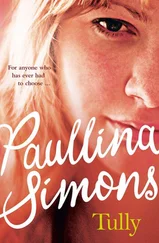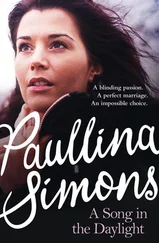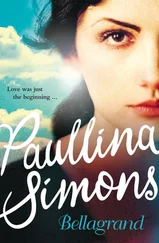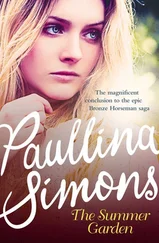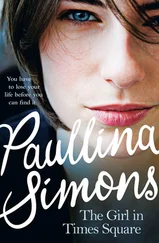“Why would she suddenly be visiting us again?”
“She says it’s been too long.”
“Tell me why so I can prepare myself.”
“Prepare yourself for what?”
Chloe wanted to provoke her mother. “She told me last Thanksgiving that she doesn’t come to us anymore because she’s mad we still blame Uncle Kenny for everything.”
“Well, that’s just silly,” said Lang, looking at no one.
Her father spoke his first sentence of the afternoon. “We do blame my brother for everything,” Jimmy said.
“Jimmy, shh.” Lang turned to Chloe. “Stop stirring the pot, young lady. Your grandmother wants to help, that’s all.”
“Help who?”
“Did we ask for her help?” Jimmy said.
“Yes, Jimmy, we did,” Lang said, one hand on her husband’s shoulder, one hand straightening out the errant lamp shade behind him. She had been feverishly cleaning as if preparing for an open house viewing.
“ You did,” Jimmy said. “Not me. Chloe is right. My mother shouldn’t come if she’s still angry.”
Lang leaned her tranquil solemn face into a sitting and grim Jimmy. “She is putting away the bygones and coming for your daughter.”
Jimmy sat coldly. “They’re not bygones,” he said.
“Come on. We agreed.”
“You agreed. I’m resigned to it. Big difference.”
She kissed his forehead. “You promised you would be civil, kind, polite.”
“No. I promised only that I’d be silent,” Jimmy said, standing up. “And you’re not letting me keep my promise, woman.” He went outside to do some yard work.
The next three hours crawled by in epic time, in Thackeray time, every day lasting a thousand tragic pages. Blake stopped by to cut down the rotting willow. Mason stopped by. Hannah stopped by. Then her friends left to go have fun in North Conway with other young people who didn’t have horror-movie grandmothers. Jimmy left to go pick up his mother and bring her back to their house.
Finally six o’clock arrived like the executioner’s hour.
Sometimes Chloe thought of her grandmother as Zeus in his Athenian Temple, gargantuan and fierce. Sometimes Moody was like Tamerlane of Mongolia, murderous and crippled. Sometimes Chloe saw Moody as Siddhartha, half the size of China, wise but terrifying in his omnipotent silence.
On Memorial Saturday, Moody was just a kettle-sized white-haired woman. She had been married to Lochlan Devine since just after the war until his death, fifty years, four of them pretty good. She had given him six children, five surviving, all boys, though what she wanted was two measly daughters. Everybody knew it because she never missed an opportunity to say it.
She was nearly deaf in both ears, but denied she was hard of hearing in even one. She grew odd white fuzz on her face. She liked to drink whiskey and eat caramels and strange spicy sausages she said were from the old country. She smoked unapologetically. She spoke fluent English in a loud, heavy and indeterminate accent. She had occluded sight, which prevented her from driving, though didn’t prevent her from complaining about not driving. Hence her life’s motto about envying the good fortune of people who could push around their own wheelchairs, which she repeated again tonight as she walked through the front door. “They don’t know how lucky they are,” Moody said.
Behind his mother, Jimmy walked in without a word, dropped his keys on the side table and went to sit down. Lang, dressed in church clothes, fussed like a tumbleweed. After Moody hugged Chloe, she blurted without so much as a half-blind appraisal, “Why do you always look so dour, child? What is this awful thing you’re wearing? You’re a beautiful girl. Why are you hiding yourself from boys? Or is it one boy in particular you’re hiding yourself from? It won’t work. They all know what’s inside the hefty bags you wear for clothes. Come, let’s go. I’m not even taking my coat off despite your mother’s efforts. Take me to the cemetery. Don’t protest, better go quick before it gets dark. You don’t want to go to the graveyard at night, do you? I jest. Of course you don’t. Believe me. So let’s go pick some flowers from this famous garden of yours, and get to it. Jimmy, give your daughter the truck keys. You haven’t suspended her license for speeding—or other violations—have you?”
“You mean like Dad didn’t suspend Kenny’s?” Jimmy said, gesturing at the keys to Chloe. “Yeah, Chloe’s still driving. She’s also not speeding, or otherwise violating the good laws of all sane people.”
Moody stared coolly at Lang.
Lang glared at Jimmy.
Chloe rolled her eyes and quickly took her grandmother out of the house.

Chloe never saw her mother as respectful to anyone as she was to Moody, and her father as silent. Lang didn’t sit until Moody sat. There was no eating, drinking, or speaking, until Moody ate, drank, and spoke. Every other question out of Lang’s mouth was, do you have enough salt? More ice? Enough cream on the mashed potatoes? I made chocolate profiteroles for dessert, and fresh coffee, but I also have decaf, or some brandy, if you like. Of course I have whiskey. Would you like some now? Are you cold? Would you like a shawl? You’re too hot? Chloe, open all the windows. And bring in the floor fan from the shed.
Her mother sat in adoration. As if Moody had waltzed in, in light cloth, sans sandals, and beyond her stooped shoulders trembled two wings. That’s how Lang behaved around her husband’s mother. Not so much the husband.
“I fixed the screens,” Jimmy said in a stiff tone meant to convey he had built the Maginot Line—between himself and his mother.
Moody shrugged, as if his fixing the screens was an achievement on par with brushing his teeth. “Good,” she said. “Because I don’t enjoy mosquitoes.”
When Lang would pass Moody’s chair, she’d place her hand gently on the white-haired woman’s shoulder, patting her. It would be amusing if it weren’t so exasperating. All the while Jimmy gazed upon his wife with a pungent mixture of compassion and hostility.
A stressed and anxious Chloe was sullen and silent, like her father, though, she guessed, for different reasons. She and Jimmy sat gray like the unfallen Berlin Wall and stared at their food, at the darkening lake, warily at Lang and Moody across from them making small talk. Chewing her lip, counting to 741 by unlucky thirteens, Chloe tried to be still, to not think. The evening blossomed with the smell of mint and quivering fresh water.
“Moody, how are your flowers doing?” Chloe went over to her grandmother’s every spring and planted beautiful things in the raised black soil.
Moody made a face. “The flowers bring bees,” she said. “Which I also don’t enjoy, having grown up in a bee farmer’s house. Especially the blood orange tulips that came up a few weeks back. Pretty, but the bees! Never seen anything like it. Don’t plant those again.”
“Tulips are perennial, Moody. They come up on their own.”
“Well, plant something else. Something that doesn’t attract bees.”
“You want me,” Chloe asked slowly, letting it sink in, “to find flowers that don’t attract bees?”
Nothing sunk in. “No bees is what I want,” Moody said. “How you get there is your problem.”
Chloe’s scalp tingling, her skin shivering, she clawed at an old bite on her forearm. Was the grand diminutive woman ever going to get to the point of her visit?
There was much food and meaningless conversation before there was finally no food and a meaningful one. After coffee with Baileys, and a second helping of profiteroles (or was it a second helping of Baileys?) Mudita Devine, née Klavin, mother of six sons, oldest one deceased, Lochlan’s widow, fluttering Clarence Odbody clockmaker, opened her mouth.
Читать дальше
